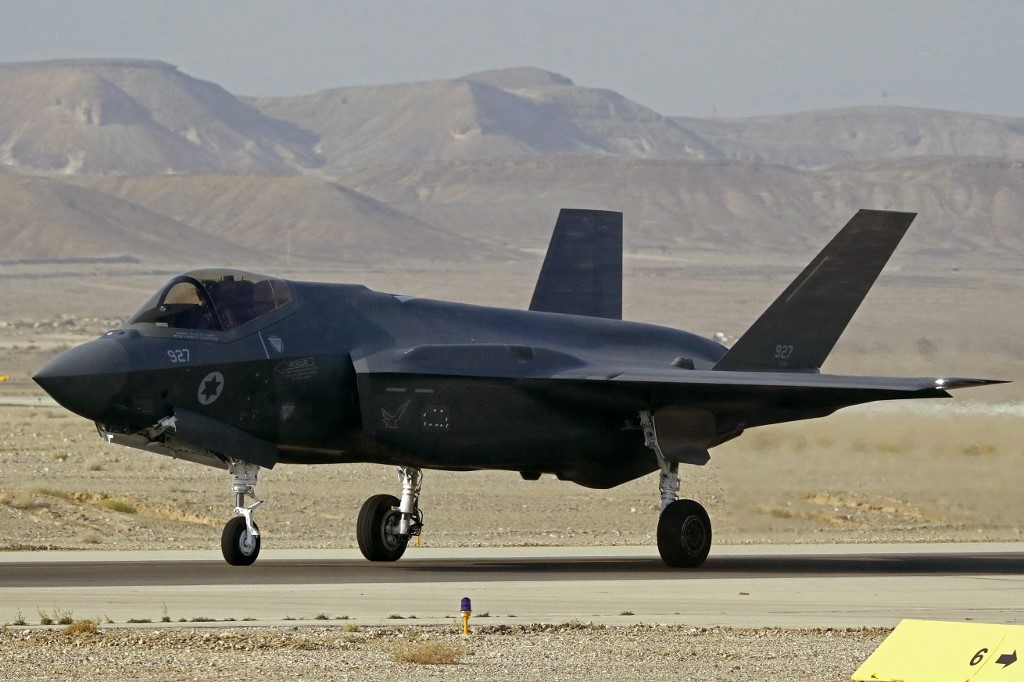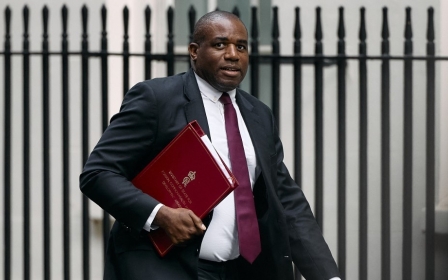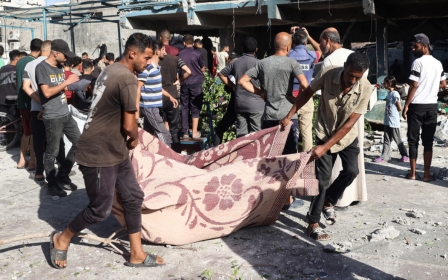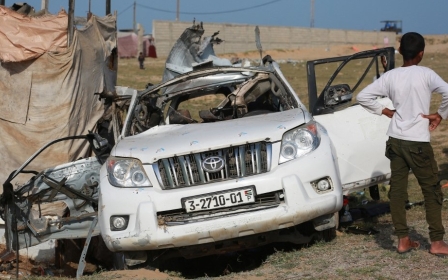War on Gaza: UK has 'no legal justification' to continue licensing parts for Israeli F-35s, 37 MPs say

The UK government is justifying the continued sale of F-35 fighter jet parts which could end up in Israel through a legal provision that “has never been formally relied on” and one which likely requires parliamentary oversight, 37 MPs said on Friday.
In a letter sent to the foreign, business and defence secretaries, the MPs also said the UK has the autonomy to remove Israel from the list of approved recipients for the F-35.
“The government has admitted it cannot licence the direct transfer of F-35 components to Israel because of the clear risk of serious international humanitarian law violations,” they write.
“But it has not suspended licences to export UK-made F-35 components to Israel as an end user via third-party countries including the United States. There are serious questions that we demand answers to about the legality and practical necessity of such an exemption.”
Last week, the UK announced the suspension of 30 licences for the export of arms to Israel over concerns that the weapons could be used in violation of international humanitarian law in Gaza.
New MEE newsletter: Jerusalem Dispatch
Sign up to get the latest insights and analysis on Israel-Palestine, alongside Turkey Unpacked and other MEE newsletters
Among licences for arms suspended were components for F-16s, the type of fighter jet which Israel used to bomb a compound housing British doctors working for UK and US organisations in southern Gaza in January.
But UK-made F-35 parts, which make up 15 percent of every fighter jet, were not on the list, raising major concerns from arms campaigners and human rights groups, including one which described it as "a workhorse of Israel’s brutal bombing campaign".
Making the announcement about the partial ban last week, Foreign Secretary David Lammy told parliament that suspending the components “would undermine the global F-35 supply chain that is vital for security of the UK, our allies and NATO”.
An international consortium of 20 countries, including the UK, the US and Israel, work together to manufacture and deliver F-35 fighter jets to one another.
Lammy suggested in his comments that it would be difficult to “distinguish, across those multiple supply chains that involve many nations, the particular bits of armory” supplied by partners.
But the MPs underlined that the global F-35 programme’s “electronic stockpile management system allows for the tracking and monitoring of parts”.
Parliamentary oversight
They also raised particular concerns over the government’s use of a provision in the Strategic Export Licensing Criteria - the government’s guidelines to determine whether to issue export licences for certain goods - to justify the decision.
The MPs said the provision “has never been formally relied on and when it is envisaged that parliament will have a role in overseeing the use of this provision”.
“We ask that you immediately provide a fuller and proper explanation to parliament about how this exemption is practically necessary and most importantly - regardless of practicalities - how it is consistent with the UK’s international obligations.”
Experts say the extent of Israel's use of the F-35 in its war on Gaza is unclear because it is extremely difficult to establish what type of aircraft is used in attacks.
However, last week Danish news outlet Information revealed that the Israeli military used an F-35 stealth fighter in a 13 July attack on a designated safe zone in Gaza which killed at least 90 people.
The MP's concerns also come a week after two groups challenging UK arms exports to Israel in the High Court threatened further legal action over the government’s decision to exempt the F-35 components from its partial suspension list.
In a 3 September hearing, lawyers representing the UK-based Global Legal Action Network (Glan) and Palestinian human rights group Al-Haq suggested they would apply for an interim relief suspension if they were not satisfied by the government’s reasoning behind the exemption after they analyse internal government documents that will be disclosed to them in the coming weeks.
If the groups were granted that order, it would force the UK government to fully suspend arms exports to Israel pending further assessments.
Middle East Eye delivers independent and unrivalled coverage and analysis of the Middle East, North Africa and beyond. To learn more about republishing this content and the associated fees, please fill out this form. More about MEE can be found here.





